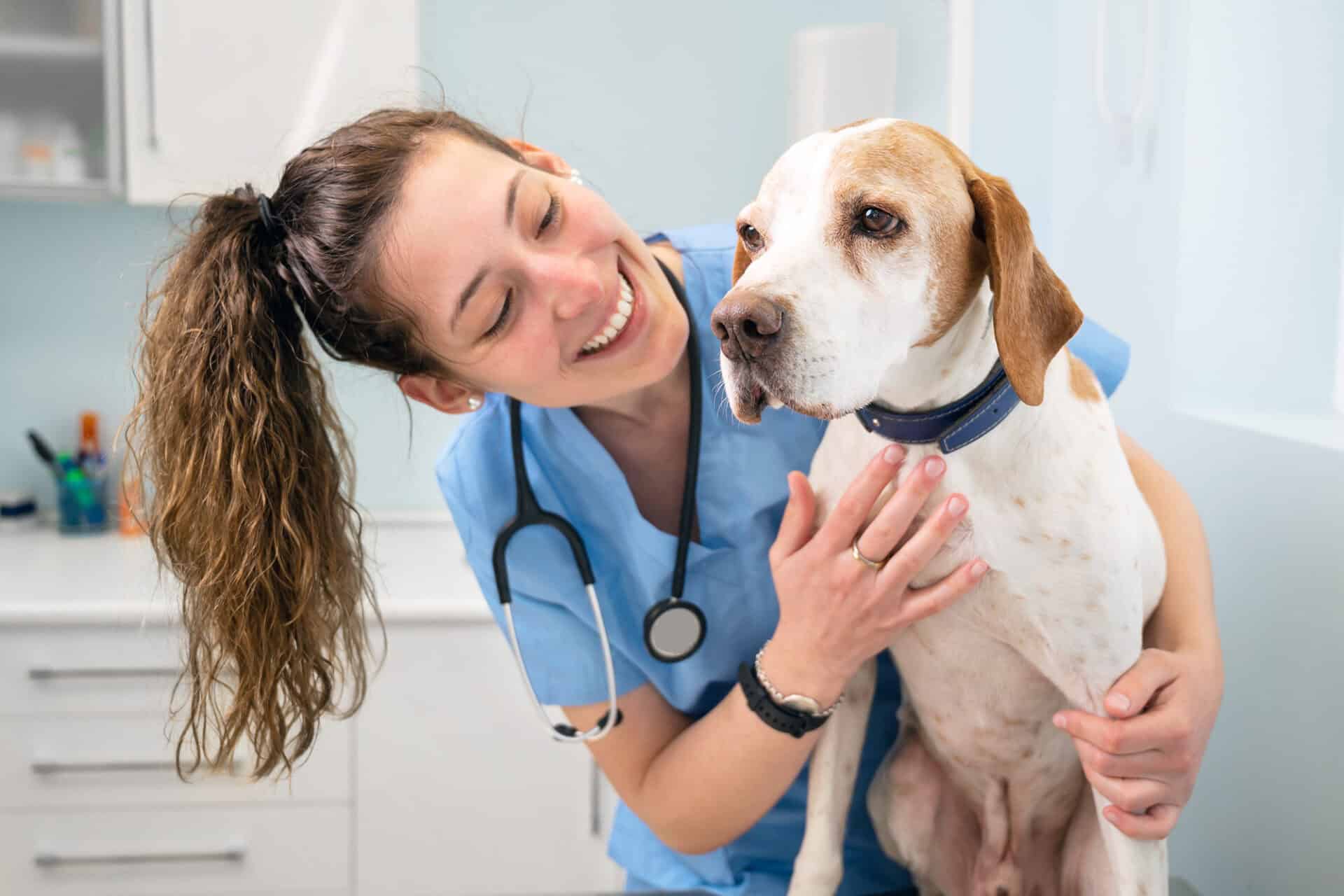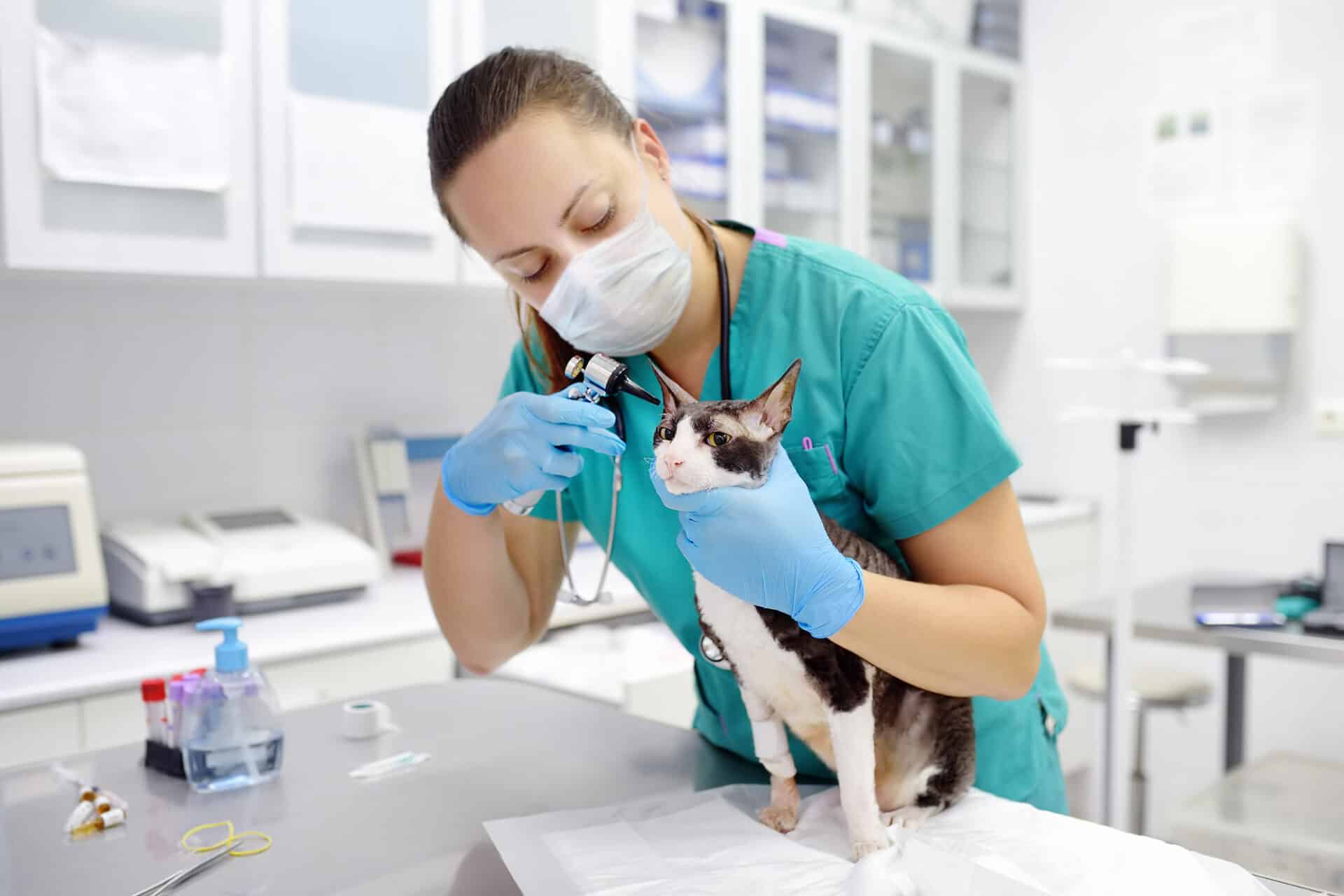Considering a career as a veterinary nurse? This guide explains what a veterinary nurse does, the skills and qualifications needed, and the career paths available. Learn how you can make a difference in animal care.
Key takeaways
- Veterinary nurses play a vital role in animal care, providing essential support to veterinary surgeons and improving the lives of sick and injured animals.
- A mix of qualifications including GCSEs, vocational diplomas, or higher education degrees is needed to become a veterinary nurse, along with practical experience in the field.
- Joining professional associations provides valuable resources, networking opportunities, and support for career development
Understanding the role of a veterinary nurse
Veterinary nurses are the unsung heroes of animal care, providing essential support to veterinary surgeons and ensuring the well-being of sick and injured animals. Their responsibilities are as diverse as they are critical, ranging from assisting in medical treatments and surgeries to supporting pet owners and running preventative health clinics.
Veterinary nurses typically work in veterinary practices or hospitals, but also animal shelters, wildlife rescues or even zoos, each with its unique challenges and rewards. The role demands not only a strong foundation of knowledge but also excellent communication skills to effectively interact with pet owners and collaborate with veterinary colleagues.
Imagine the satisfaction of nursing an injured animal back to health or providing comfort to a pet owner during a difficult time. Veterinary nurses are integral members of the veterinary practice, working closely with veterinary surgeons to deliver nursing care. Their expertise and dedication make a significant impact on the lives of countless animals and their families.
As you embark on this journey, you’ll find that every day brings new challenges and opportunities to make a real difference.
Essential qualifications for veterinary nurses
Embarking on a career in veterinary nursing requires a blend of academic qualifications and practical skills. To gain entry onto a veterinary nursing course, you typically need a minimum of 5 GCSEs at grade 4 or above, including English, maths, and science. For those aiming to enrol in a foundation degree in veterinary nursing, at least one A level or equivalent qualification is generally required, while for a veterinary nursing honours degree course, two or three A levels, or equivalent, including biology are needed. These requirements vary between universities though, so it’s best to check before applying.
The quickest route to becoming a registered veterinary nurse is by obtaining a Level 3 Diploma in Veterinary Nursing, which provides the necessary training and practical experience. The journey doesn’t stop at initial qualifications and many veterinary nurses choose to upgrade to a degree course. Switching from a Level 3 Diploma to a BSc honours degree for example, requires additional studying. However, this progression not only broadens your knowledge base but may also help to open up other career opportunities.
Once on practice, there is also the requirement to complete 25 hours of veterinary nurse CPD annually.
Pathways to becoming a veterinary nurse
So, there are several pathways to start your career in veterinary nursing, each offering its own advantages. Vocational training, through a Level 3 Diploma is a popular route. This can be completed through apprenticeship-style learning, alongside a job in a veterinary practice. This can take up to three years to complete but allows you to earn while you learn, gaining hands-on experience in a veterinary practice alongside your studies. Alternatively, the Diploma can be completed on a full-time college course in as little as two years, with time spent in the classroom alongside blocks of training on placement.
For those considering higher education, universities offer foundation degrees and BSc honours degrees in veterinary nursing. Funding options like the Advanced Learner Loan can make these educational pathways more accessible, helping you to pursue your dreams without the burden of upfront costs.
Training and practical experience
Gaining practical experience is a cornerstone of becoming a veterinary nurse, helping you develop the hands-on clinical skills necessary for the role. In order to train veterinary nurses, including having students on placements, veterinary practices have to be approved., This ensures that students receive high standards of training and a variety of experiences.
Training in a veterinary practice provides invaluable insights into the daily operations of a veterinary team, from routine check-ups to emergency treatments, and includes learning that would not be possible in the classroom or lecture theatre.
Whether you’re assisting with surgeries or conducting laboratory work, the practical experience you gain during your training will prepare you for the diverse challenges of a veterinary nursing career.
Work experience requirements
Work experience is not just beneficial, it is often a requirement for enrolling on a veterinary nursing course. Voluntary work in rehoming centres or work experience in veterinary practices, catteries, kennels and farms provides aspiring veterinary nurses with a broad understanding of animal care in different settings. This diverse experience will set aspiring veterinary nurses in good stead There are even opportunities for volunteer placements abroad.
When applying for veterinary nursing courses, you usually have to provide a work experience record and may have to supply references to support your application.
Clinical skills development

Developing clinical skills is a fundamental aspect of veterinary nursing. Veterinary nurses perform a variety of tasks, including consultations, bandaging, taking blood samples, and assisting in surgery. To qualify as a veterinary nurse, you must complete at least 1,800 hours of training in clinical practice, either through employment or on placement. This ‘hands-on’ training includes:
- Theatre practice – running a surgical suite, assisting with surgeries, and providing postoperative care
- Diagnostic techniques – methods of diagnostic imaging and preparing cats, dogs and other species for diagnostic procedures
This helps ensure that you are well-prepared to handle the demands of the job from day one.
Registration with the RCVS
Registering with the Royal College of Veterinary Surgeons (RCVS) is a crucial step for veterinary nurses. The RCVS is responsible for accrediting veterinary nursing courses and ensuring that professional standards are maintained. To carry out nursing procedures, student nurses must also enrol with the RCVS, which allows them to gain practical experience under supervision.
During your training, you will compile an electronic nursing progress log to document your development and ensure that you meet the required standards. The RCVS uses the record of training to verify that you have fulfilled the necessary training hours for registration. Upon completing their training, qualified veterinary nurses must pay an annual registration fee to maintain their registration.
Career opportunities and progression
Veterinary nursing offers a wide range of career opportunities and pathways for progression, including:
- First opinion veterinary practice
- Emergency clinics
- Referral hospitals
- Teaching or becoming a clinical coach in practice
- Becoming a head nurse or practice manager
- Veterinary industry, including working for a nutrition or pharmaceutical company
This diversity allows veterinary nurses to find their niche and pursue their passions, leading to a fulfilling and rewarding career.
Funding your veterinary nursing education
Funding your veterinary nursing education is an important consideration, but fortunately, there are various options available to help manage the costs, including:
- Advanced Learner Loans
- Apprenticeships
- Government loans for first degrees
These options can significantly reduce the financial burden, making it easier to pursue your educational goals. For instance, individuals over 19 can apply for an Advanced Learner Loan, with repayments starting only after salary rises above a certain threshold. There are other options available too and the websites of your training providers or the university student finance team can be a good source of information.
Working conditions and uniform requirements
Veterinary nurses work in environments that are both physically and emotionally demanding. The job requires resilience, as you may encounter challenging situations involving sick and injured animals and it’s important to take time to look after your own wellbeing.
To maintain hygiene and safety, veterinary nurses are required to wear uniforms and protective clothing while on duty. These should ideally be changed into and out of at work and washed at 60oC to reduce the risk of spreading infection.
Joining professional associations
Joining professional associations, such as the British Veterinary Nursing Association (BVNA), offers numerous benefits for veterinary nurses. Membership of professional associations allows you to connect with other professionals, share knowledge, and stay updated on all the latest in veterinary practice.
Membership of some organisations may offer additional benefits such as income protection discounts through partner organisations and access to helplines for guidance on employment law and financial matters. By joining these associations, veterinary nurses can help ensure they are well-supported throughout their careers and have access to valuable resources that contribute to their professional growth.
Summary
Becoming a veterinary nurse is a rewarding journey that combines a passion for animal care with a commitment to professional excellence. From understanding the role and essential qualifications to gaining practical experience and exploring career opportunities, every step is crucial in shaping a successful career in veterinary nursing. A career that makes a meaningful difference to the lives of pets and their owners.
As you embark on this path, remember that every moment of hard work and learning, whether that is hands-on experience or more formal learning, brings you closer to becoming a skilled and compassionate veterinary nurse.
Frequently Asked Questions
What qualifications do I need to become a veterinary nurse?
To become a veterinary nurse, you need at least 5 GCSEs, including English, Maths, and Science, along with a Level 3 Diploma in Veterinary Nursing or a foundation degree. Pursuing this path will empower you to make a real difference in animal care!
How long does it take to become a registered veterinary nurse?
You can become a registered veterinary nurse in two to three years, depending on your study pathway.
What types of work experience are required for entry on veterinary nursing courses?
It’s important to gain work experience before you apply. Not only will it strengthen your application, but it will also help you decide if veterinary nursing is the right career choice. Try and get a broad range of experience in diverse settings like veterinary practices, kennels, and rehoming centres.
How can I fund my veterinary nursing education?
You can help fund your veterinary nursing education through advanced learner loans, apprenticeships, government loans, and various grants and bursaries. Your university or course provider is a good place to start. They will be able to guide you and help you explore the available options.
What career opportunities are available for veterinary nurses?
Veterinary nurses have diverse career opportunities, from working in clinical settings, rehabilitation and emergency care, to leadership roles or working in veterinary industry.
Is CPD a requirement for veterinary nurses?
Yes, veterinary nurses are required to complete 15 hours of CPD per year. Find out more with our handy guide to vet nurse CPD requirements.

